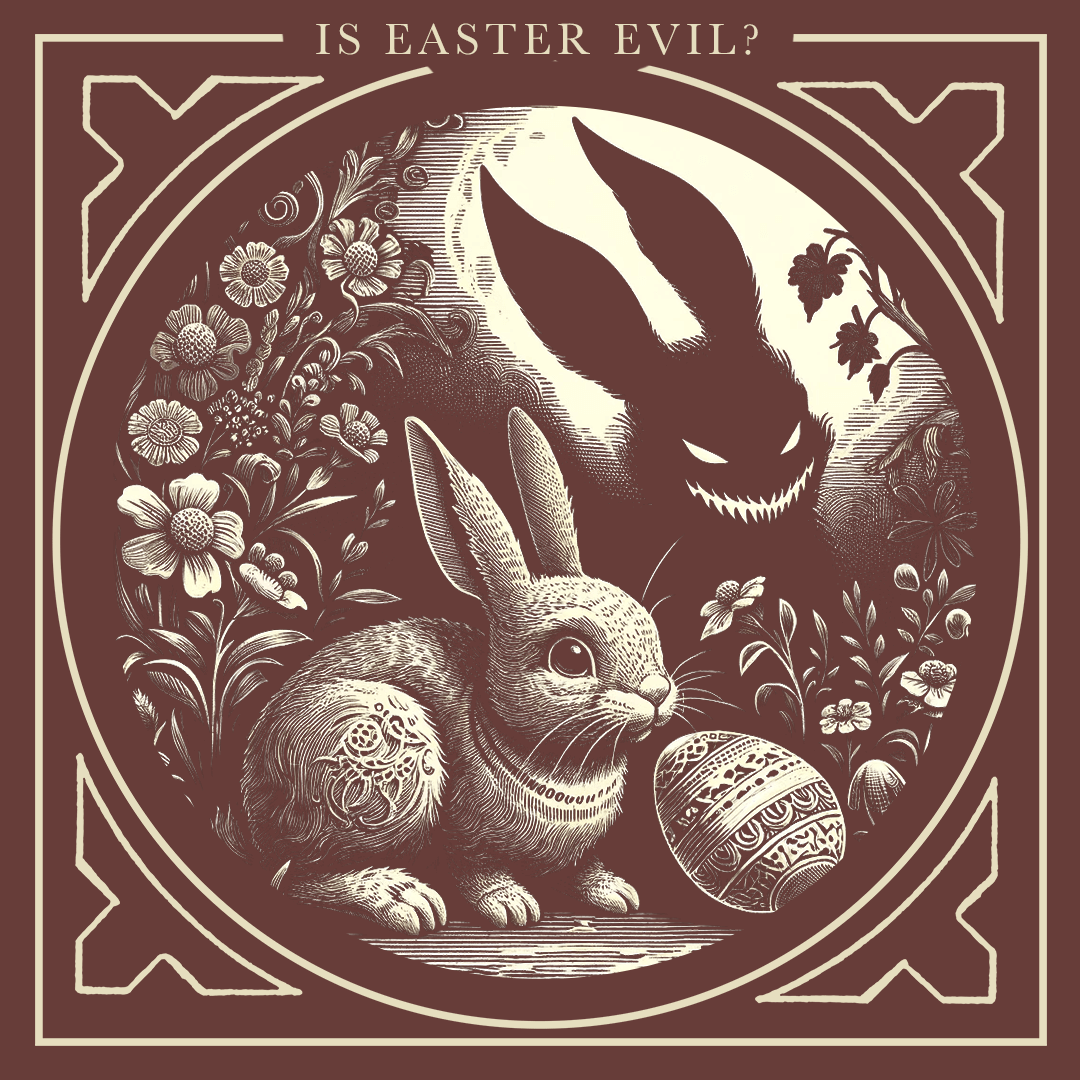
Should Christians Celebrate Easter: Is Easter Pagan?
Two of the most important stories in the Bible are Christmas and Easter: the day that Jesus was born of the Virgin Mary, and the day that Jesus became the firstborn from the dead. Both play a vital role in the Gospel and are, frankly, the centerpieces of the Christian faith. In the next two weeks, Christian churches all over Ada will gather together to celebrate Palm Sunday and Easter! And they should! These events ought to be remembered, memorialized, and celebrated!
But hold up, have you heard about the ‘anti-holiday squad’? These folks are super sincere, wanting to keep their faith clean and clear from what they see as sneaky, pagan party crashers. Kudos for the purity goals, but guys, let’s straighten out a couple of twisted tales swirling around the web. While their intention to walk in purity is commendable, it is crucial to address the distortions fueled by myths, speculation, and association fallacies that are rampant on the internet.
The debate surrounding Easter, a time traditionally dedicated to commemorating the resurrection of our Savior, Jesus Christ, has become particularly contentious. Each spring, discussions resurface, targeting symbols like bunnies and eggs, decried as pagan elements diluting the true meaning of Easter. Yet, a closer examination reveals that these allegations are not as cut-and-dried as they appear.
Firstly, the argument that Easter has pagan origins, specifically tied to deities like Ishtar or Astarte, is fabricated. The anti-holiday crowd asserts this because the words sound similar, but there is no evidence, only claims, that these events are related. But the similarity of the words “Ishtar” and “Easter” falls apart when you realize ‘Easter’ is unique to Germanic languages and bears no direct relation to these ancient figures. In many parts of the world, the holiday retains its original name, ‘Pascha,’ derived from Passover, reflecting its Christian roots and timing aligned with the Jewish observance. The reason why it’s called Eastern English and Germanic languages likely has to do with the name of the month that fell around April which was called Eostremonath. Most of the misinformation surrounding Ishtar originated from an individual named Alexander Hislop, who authored a book that reputable historians do not consider credible. This is due to the fact that none of Hislop’s assertions align with actual ancient texts when scrutinized.
Now, onto our furry friend, the Easter Bunny. Similarly, the Easter bunny, often vilified as a symbol of pagan fertility, lacks historical evidence to support such a claim. The association of rabbits with fertility is a natural one, given their reproductive habits during the spring, but this does not necessarily tie them to pagan worship. In fact, the tradition of the Easter Bunny has benign roots, with the earliest references in the late fifteen hundreds, appearing long after the decline of paganism in Europe.
Easter eggs, too, are a point of contention, yet they suffer from a similar misinterpretation. While eggs have been used symbolically in various cultures, including pagan ones, their inclusion in Easter celebrations is not inherently tied to non-Christian beliefs. The tradition likely stems from practical customs related to the preservation of eggs during the fasting season of Lent, which leads up to Easter. This imagery later evolved into a symbol of new life and resurrection, aligning well with the Christian narrative. The reader should note I am not justifying Easter egg hunts; I don’t particularly care for them either. However, they should not be demonized under the faulty premise that they are pagan.
The critical error of the anti-holiday faction lies in their inability to prove that modern Easter customs, which do not seek to worship or honor Christ, originated from pagan rituals. Moreover, they fail to demonstrate how activities like egg painting or egg hunts are inherently sinful simply because pagans may have used eggs in their own rituals. The underlying issue here is the misuse of the association fallacy. By this flawed logic, many aspects of Christian tradition would be erroneously deemed pagan. For instance, there is no biblical command to attend synagogue for education or worship of YHWH within Judaism. The Jewish faith demands that the Jewish people center their worship around the temple, not the synagogue. One could wrongly hypothesize that pagans, in fact, worshipped in many locations outside of their temple; therefore, Jewish believers were adopting pagan forms of worship. However, this is an erroneous association fallacy, similar to the one leveled against those who observe Easter.
In conclusion, while it is vital for believers to remain vigilant against syncretism and to uphold the purity of their faith, this vigilance must be balanced with sound reasoning and historical accuracy. And if you’re in the mood for a deep dive, check out some of the resources here for more historical studies on Easter. Let’s keep the fun in our faith and remember what we’re really celebrating. Happy Easter, everyone – let’s party like it’s 33 AD!”
https://a.co/d/8MroyqE
https://a.co/d/2WKPdUf
To learn more about what we teach at King’s Fellowship Church in Ada, Oklahoma check out our beliefs:
https://kingsfellowshipchurch.com/ada-church-our-beliefs-kings-fellowship/
To learn more about our city:
